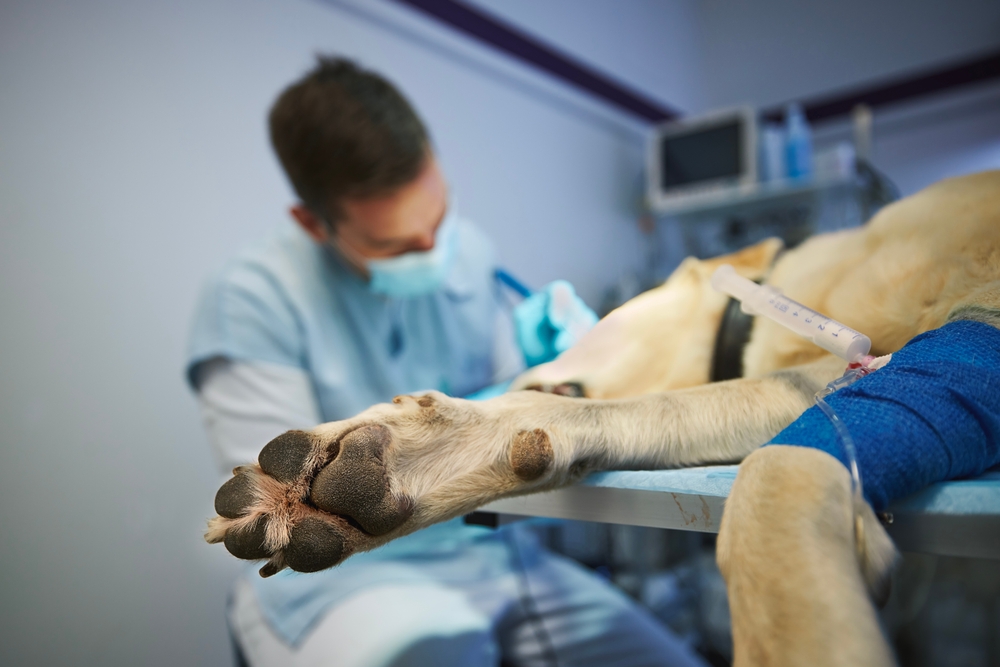
As a pet parent, nothing is more frightening than seeing your dog in distress. Emergencies can happen suddenly and without warning, so knowing what to look for and how to respond can make all the difference in your dog’s health and safety.
Common Medical Emergencies in Dogs
Dogs can experience a wide range of emergencies. Some of the most common include:
Ingestion of toxic substances (chocolate, grapes, xylitol, household cleaners)
Difficulty breathing or choking
Seizures
Severe vomiting or diarrhea (especially if bloody)
Injuries such as broken bones, open wounds, or being hit by a car
Collapse, weakness, or sudden inability to walk
Heatstroke or overheating
Bloating/abdominal swelling (possible gastric torsion, which is life-threatening)
Recognizing the Signs of an Emergency
Dogs can’t tell us when something is wrong, so it’s important to recognize the signs that require immediate veterinary care:
Uncontrolled bleeding
Labored or noisy breathing
Pale or blue gums
Sudden changes in behavior (disorientation, unresponsiveness, extreme lethargy)
Persistent seizures or shaking
Vomiting or diarrhea lasting more than 24 hours
Swollen, painful abdomen
Collapse or loss of consciousness
If you see any of these signs, treat the situation as an emergency.
What To Do If Your Dog Has a Medical Emergency
Stay calm - Your dog can sense your stress, and staying composed helps you act quickly and clearly.
Assess the situation - Check your dog’s breathing, level of consciousness, and visible injuries.
Call your veterinarian immediately - Contact Madison Animal Care Hospital for guidance..
Follow instructions - Your vet may guide you through first aid steps over the phone.
Transport safely - Move your dog carefully. Use a blanket or towel as a stretcher for large dogs and keep them secure during the ride.
Do not give human medications - Many common medications are toxic to dogs and could make the situation worse.
Bring helpful information - If your dog ingested something toxic, bring the packaging or details about what was consumed.
Protect Your Pet with Expert Emergency Care
Medical emergencies can be frightening, but being prepared helps you act quickly and confidently when your dog needs it most. Recognizing the signs, staying calm, and contacting your veterinarian right away are the best steps you can take to protect your pet.
Contact Madison Animal Care Hospital to learn more about our emergency referrals or to schedule your pet’s next wellness exam. Visit our office in Madison, Alabama, or call (256) 461-7575 to book an appointment today.






